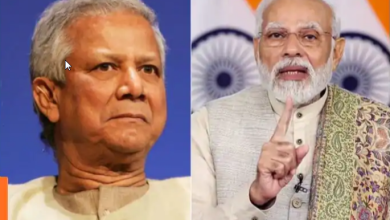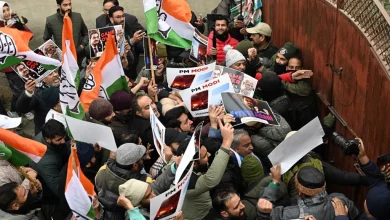‘India Out’ drive gains momentum in Bangladesh over interference in internal matters
 Dhaka: In yet another significant development after the Maldives, Bangladesh is also witnessing a surge in the ‘India Out’ campaign, led by the Bangladesh Nationalist Party (BNP), over blatant interference by India in the country’s internal affairs and politics.
Dhaka: In yet another significant development after the Maldives, Bangladesh is also witnessing a surge in the ‘India Out’ campaign, led by the Bangladesh Nationalist Party (BNP), over blatant interference by India in the country’s internal affairs and politics.
The ‘India Out’ campaign, seen by political experts watching day-to-day developments in South Asia as, rooted in historical sentiments and contemporary political concerns, has gained momentum, with the opposition asserting the sovereignty of Bangladesh and urging the international community to recognize its struggle against external manipulation by India.
The birth of Bangladesh in 1971, amid the exploitation of anti-Pakistan sentiments orchestrated by India, forms the historical backdrop of the ‘India Out’ movement. The campaign argues that during the creation of Bangladesh, India worked against the concept of an Islamic state, fostering ethnic pride and causing an identity crisis. The scars of this manipulation, as per the movement’s narrative, continue to linger, sowing seeds of discontent among the people.
The opposition, particularly the BNP, says India is meddling in Bangladesh’s domestic affairs. It claims that the ruling party, supported by India, is tightening its grip through dictatorship and electoral rigging. The movement denounces India’s desire for a friendly Bangladesh that is vehemently anti-Pakistan, asserting that it clashes with the natural tendency of the people to align with Islamic culture and fraternity. Discriminatory Acts like mistreatment, including lynching, of Muslims in India further contribute to the anti-India sentiment.
Despite calls from the United States for free and fair elections and fair treatment of the opposition, the ruling party, ostensibly with India’s support, continues to tighten its grip on Bangladesh.
The ‘India Out’ movement seeks global recognition of Bangladesh’s struggle against external manipulation, emphasizing its historical sentiments and the quest for self-determination.
The political experts have opined that the call from the ‘India Out’ movement carried a clear message that India should cease meddling in the internal affairs of its smaller neighbors, be it Maldives or Bangladesh.
As the movement gains momentum, it underscores the complexity of Bangladesh’s sociopolitical landscape and the deep-seated animosities rooted in history. The opposition’s narrative resonates with sections of the population, leading to a growing anti-India sentiment within Bangladesh. The international community continues to observe the developments closely, with the ‘India Out’ movement shaping up to be a significant chapter in the nation’s political history.








